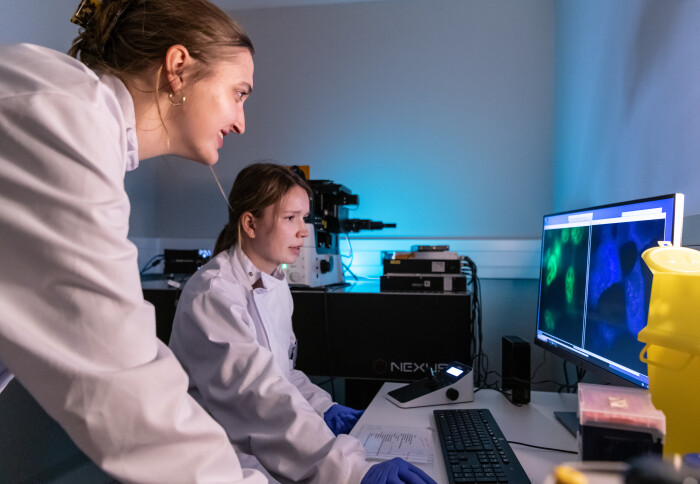Imperial joins new Doctoral Training Centre funded by Alzheimer’s Society
by Meesha Patel

Led by the University of Manchester, the centre will support and nurture dementia researchers at the start of their career.
Currently, only one in five dementia PhD students stay in dementia research often due to underfunding and the challenging nature of academic careers. Researchers taking their first steps into the field will be the dementia research leaders of the future and therefore it is critical to maintain the momentum to end the devastation caused by dementia.
The Alzheimer’s Society Doctoral Training Centre for Vascular and Immune Contributions to Dementia will be one of three centres across the UK funded by the Alzheimer’s Society.
In total the three centers, led by University of Manchester, Newcastle University and Queen Mary University of London will support over 90 students over five years to enter dementia research.
They will focus on building knowledge and research expertise in areas that have been particularly underfunded. This includes understanding how changes to blood vessels and our immune systems contribute to dementia, Lewy body dementia and Integrated Care. The Doctoral Training Centres will represent networks of researchers from a range of institutions working on the same research topic with varying expertise and specialisms.
"Our mission is to train 29 exceptional PhD students in pioneering research that will revolutionise our understanding and treatment of dementia." Dr Fatemeh Geranmayeh Department of Brain Sciences
Dr Fatemeh Geranmayeh, Clinician Scientist and Proleptic Senior Clinical Lecturer, Department of Brain Sciences said: “I'm incredibly excited to lead the Imperial VIDA program. The Vascular and Immune Contributors to Dementia Doctoral Training Centre, spearheaded by the University of Manchester alongside Imperial, Edinburgh, and St. George’s, represents a bold £2.99 million investment by the Alzheimer’s Society."
"Our mission is to train 29 exceptional PhD students in pioneering research that will revolutionise our understanding and treatment of dementia. These students will thrive in a vibrant, collaborative environment, positioning them as the future trailblazers in the fight to make dementia a treatable condition.”
Future dementia leaders
Dementia is the UK’s leading cause of death but there is no cure. With this programme, a new generation of researchers can lead innovative new discoveries into this field.
The new Alzheimer’s Society Doctoral Training Centres, will play a role in encouraging people to enter the field of dementia research, as well as create a supportive network. They will provide PhD students with unique access to activity across the centres – widening their options for peer support, networking, knowledge sharing and training.
Professor Stuart Allen at the University of Manchester, lead of the Doctoral Training Centre for Vascular and Immune Contributions said: “A huge number of people are affected by dementia – directly or indirectly – and unfortunately treatment options are extremely limited. Our research will focus on changing this situation to make dementia a treatable condition, improving quality of life for patients”
This news story was created with materials provided by the Alzheimer’s Society.
Article text (excluding photos or graphics) © Imperial College London.
Photos and graphics subject to third party copyright used with permission or © Imperial College London.
Reporter
Meesha Patel
Faculty of Medicine Centre